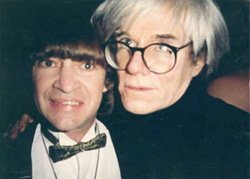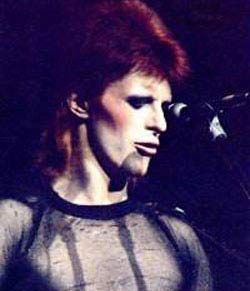Where Are We Now? In Praise Of: David Bowie
By Contributor in Music / Festivals on 08 January 2013
 Say Cheese! David Bowie At The Sundance Film Festival in 2009
Say Cheese! David Bowie At The Sundance Film Festival in 2009
So you might have noticed that David Bowie has returned. In a century where we’ve pretty much exhausted all the supposed legends of the 20th century, each one coming back for one final pay day and a chance to remind them and their fans of a youth they’ve long since left behind. Some don’t like to pretend they’ve left it: the new Rolling Stones songs off their recent greatest hits compilation Grrr! still pine for a time when Mick Jagger was the pin-up boy of the 70’s, when the ‘Stones really did growl with a snarling energy.
But the difference between the Stones and The Who, is that David Bowie – even if his material in the latter years of the 90’s and turn of the millennium didn’t always match-up to his golden era of the 70’s – has always tried to look forward, even as music tastes and trends have gradually changed so that more and more acts of today seem to try and sonically represent the future as the past. By this we mean you could take a field sample of thirty relatively successful acts of 2012 and reel of a list of those they sound like from bygone eras. David Bowie’s comeback single ‘Where Are We Now?’ is by no means near the best song he’s ever written, it’s probably not even the best he’s written in the past 20 years (not many given he’s been artistically dormant for 10 of them), but it sounds intrinsically his own.

On The Street: David Bowie Takes A Stroll Around New York
This is why both his creative career and return are to be praised: as it gets harder and harder to create something entirely forward thinking, unburdened by what’s gone before, so the individuality is found in the person behind the music, and their intangible skill in imbuing a sense of their own personality into it, even if the vehicle has been used before. Bowie couldn’t always do that; you could argue that the early stages of his career – his self-titled debut in 1967, 1969’s Space Oddity album – were representative of the artist trying on different clothes, different traits as a way to be noticed rather than a way to be creatively fulfilled. Maybe that never really changed, but with each costume change, through Hunky Dory, the Ziggy Years, onto the Thin White Duke, Bowie’s output gradually uncovered more and more of the man underneath; he was an explorer both musically and beyond, an artist whose material – particularly the critically acclaimed Berlin Trilogy of Low, “Heroes” and Lodger – constantly asked questions, ones which often led to merely more philosophical exploration. That he managed to frame this through a prism that was accessible enough for him to sell over 130 million records worldwide is something to be applauded, and is proof that Bowie has always set his own boundaries, if only so he can attempt to break them later on.
Even on 2002’s Heathen and follow-up Reality he still sounded like he was trying to push forward, find a new voice, adjust to his new age and perspective on the world. That he disappeared was widely suspected to be down to health concerns, but perhaps maybe he’d found the comfort he needed not to carry on making music anymore. If that’s to be believed then you can believe that this new record is far more than a powder-puff comeback: Bowie’s mind is restless again, something that can only be good news for fans of one of the last true mainstream enigmas in British pop music.
Contactmusic
Movies and Trailers

Mayor of the Sunset Strip Movie Review
Like most viewers of his documentary Mayor of the Sunset Strip, director George Hickenlooper (The...

Ziggy Stardust & The Spiders From Mars Movie Review
Throughout most of David Bowie's 1973 concert film "Ziggy Stardust and the Spiders from Mars,"...













![International Dance Day: Celebrating with seven "dance" number ones [Playlist] International Dance Day: Celebrating with seven "dance" number ones [Playlist]](https://www.contactmusic.com/images/home/images/content/dance-stock-pixabay.jpg)
